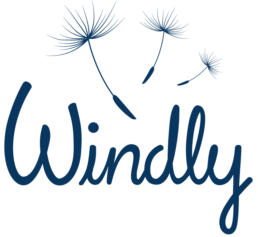Windly n: (an ally through the wind)
As an environmental and humanitarian advocate and practitioner, I am constantly faced with the dichotomy of the incredible needs in the world and the sobering lessons learned from development, humanitarian, and environmental efforts gone wrong.
From acute and chronic food insecurity, to forced migration at historic levels, to the sixth mass extinction of species, and a climate crisis- the issues facing our world and the people in it are extreme, complicated, and scary. They also involve people’s lives, dignity, and the survival of our planet as we know it. In other words, not much at stake, right? Hah.
On the other hand I’m acutely aware of where development has gone wrong: where well meaning philanthropists and development practitioners have imposed their ideas of what “development” should look like. From industrial employment regardless of costs to human dignity or health, to Western health practices that aren’t culturally appropriate to the host community, to protecting endangered species that local communities economies and diets depend on – the examples are endless and pervasive.
The era of traditional colonialism is more-or-less over, but postcolonialism is alive and well. What does this mean? Essentially, colonialism involved an imperial imposition of foreign rule typically over a nation state (think, British Commonwealth, German West Africa now Namibia, Rhodesia, the United States, etc.). While many (not all) countries re-gained their independence in the late 1900s, quieter forms of colonialism behind closed doors remained. Postcolonialism can take many forms, including foreign direct investment controlling which projects get built or which programs get prioritized (Chinese investment in African countries), funding for international public health programs but only when the drugs are approved by the FDA (creating business for U.S. pharmaceuticals), food that is grown in the U.S. and shipped on vessels bearing U.S. flags used as international food aid overriding local capacity for local growers to grow and sell their own food, and much more. It also exists in the shadows of cultural norms and of power, racial, gender dynamics – even down to Western forms of legal systems, beauty standards, or perceptions of wealth and health.
As someone who is action oriented, generally optimistic, and aware that solutions to the deeply rooted environmental and humanitarian issues exist, how do I balance my desire to “do good” with a keen awareness of the intricacies of foreign impact? As a white upper/middle class American woman, what is my role in this space? I don’t think the answer is to just throw our hands up and shop at farmers markets, eat local, and turn the news off. I wish it were, but that’s too easy. But overall, I believe that impact > intent. Bottom line. It doesn’t matter if you meant to “do no harm”, if you did.
So, how do we balance the desire to be part of solutions with the keen awareness that a lot of times what seems like a solution is actually a massively distorted effort that overrides local systems, creating systems of dependency that insult people’s dignity?
Meet “Windly”.
Windly’s name is the combination of two words: Wind + Ally. The idea is that you (you, me, all of us) can support solutions to environmental and humanitarian organizations that are run by grassroots organizations around the world. As an ally through the wind your engagement in the Windly platform will leverage support to these organizations that are too busy actually doing the work in localities around the world to leverage support in terms of accessing funding or raising awareness.
Windly verifies these organizations based on a set of 10 criteria and provides information about them, along with information and news about the issues they are working on in a way that makes it easy to understand, stay-up-to-date, and engage in solutions.
The bottom line: solutions to environmental and humanitarian issues exist, but they’re often in the hearts and hands of people around the world who are too busy working on these issues to raise funds or awareness for them (or there are structural barriers to them raising funds/awareness).
Windly is here to connect you to solutions and empower you to get excited and motivated to participate in making the world a better place. The best part? It’s really fun.
